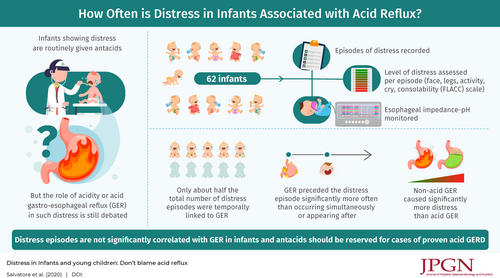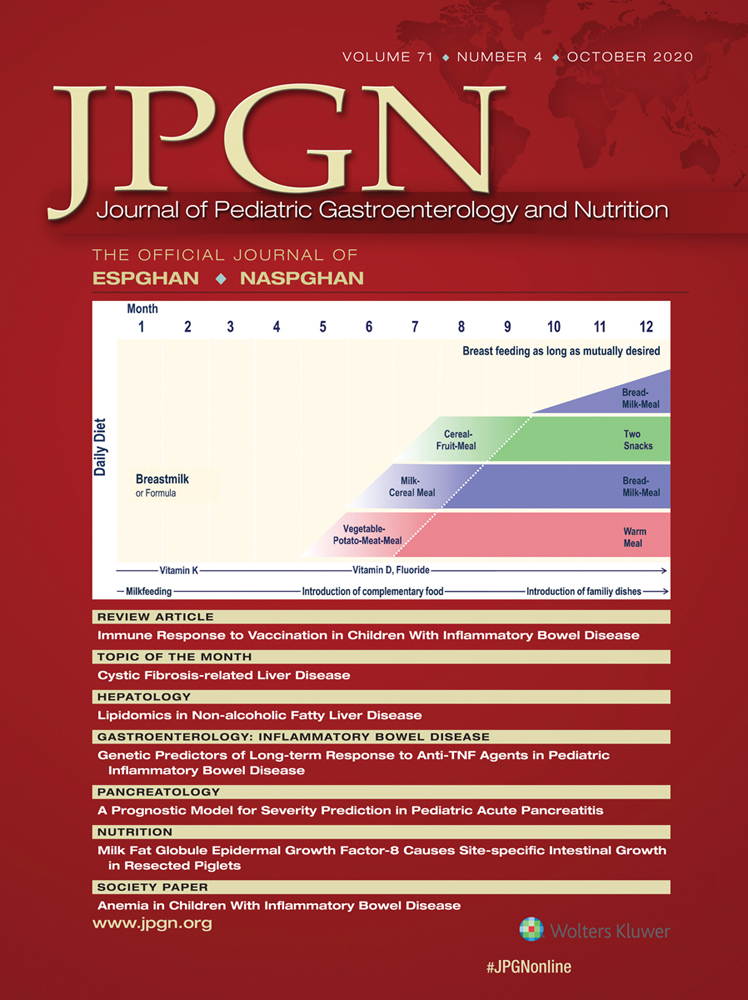Distress in Infants and Young Children
Don't Blame Acid Reflux
The authors report no conflicts of interest.
Supplemental digital content is available for this article. Direct URL citations appear in the printed text, and links to the digital files are provided in the HTML text of this article on the journal's Web site (www.jpgn.org).
An infographic is available for this article at:http://links.lww.com/MPG/B880.
ABSTRACT
Objective:
The role of gastroesophageal reflux (GER) causing distress in infants is controversial but acid inhibitors are often empirically prescribed. We evaluated the relation between distress assessed by the Face, Legs, Activity, Cry, Consolability (FLACC) scale and GER in infants.
Methods:
We analyzed multiple intraluminal impedance-pH (MII-pH) monitoring tracings of infants with persistent unexplained fussiness or distress. Symptoms occurring during investigation were scored by parents using the FLACC scale and were grouped as “distress” episodes.
Results:
We recruited 62 children (ages 15 days to 23 months, median age 3.5 months). During MII-pH, 452 episodes of distress were registered: 217 (48%) were temporally associated with GER and 235 (52%) were not, with no difference in the median value of FLACC between the 2 groups. Infants with abnormal acid exposure index had a significantly lower FLACC compared with the group with acid reflux index <7% (P < 0.001). When associated with symptoms, GER occurred significantly more often before than simultaneously or after an episode of distress (P = 0.001). Age, proximal extension, and duration of GER did not correlate with FLACC scores. Episodes of distress associated with nonacid reflux presented a significant higher FLACC compared with the ones with acid content (FLACC 6 vs 5, P = 0.011). In infants, episodes of distress do not significantly correlate with GER.
Conclusions:
No difference in infant distress was noted between proximal and distal GER. Non-acid reflux is perceived at least as painful than acid GER. Our results stress that acid inhibitors should not be started in infants presenting distress unless a clear association with acid GER is demonstrated.





